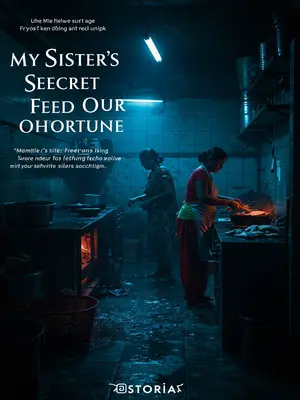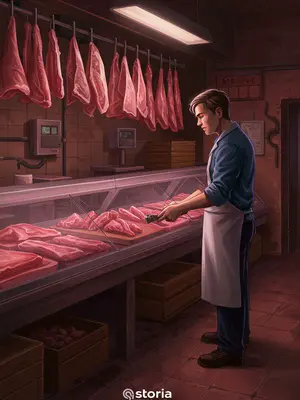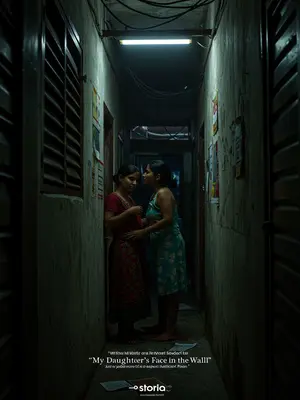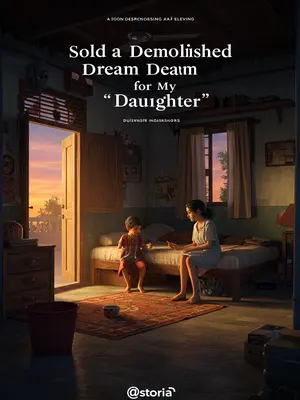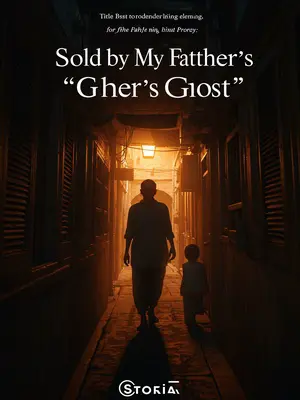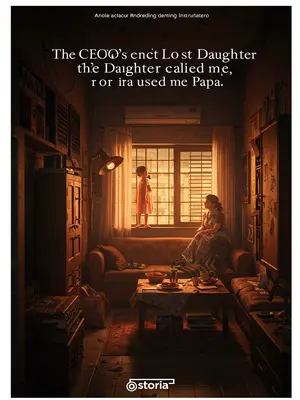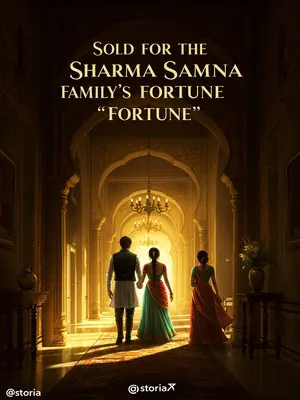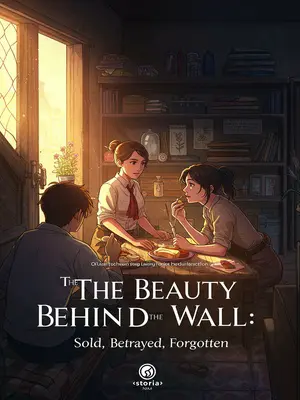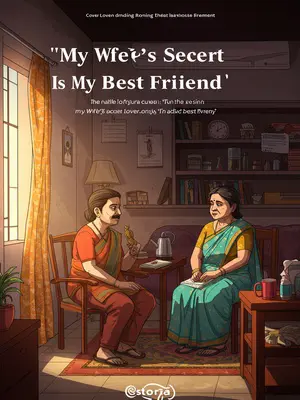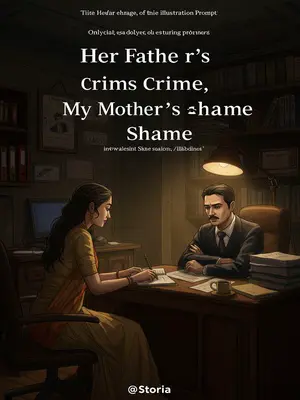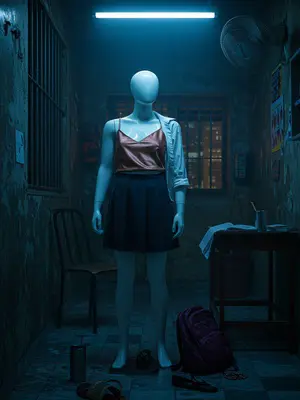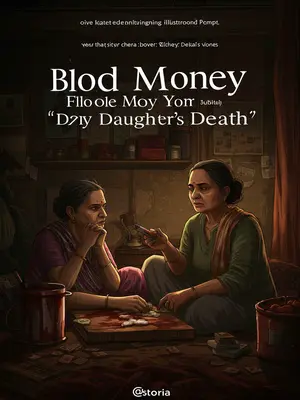Chapter 1: Sausages and Secrets
A young girl vanished after running away from home. By the time the police found her, her body had already been turned into sausages.
The news hit us like a slap—Mumbai had seen its share of horrors, but this was something else. The details crawled beneath the skin, refusing to let go.
As this grim news spread through the city, in the colony, aunties gathered near the lift, clutching their dupattas and whispering in low tones, their eyes darting to the Sharmas’ door whenever the pressure cooker whistled. Even the morning hawker, usually shouting ‘Pav, doodh!’ at full volume, paused longer at the Sharmas’ door, his basket heavy with unsold bread. The murderer was brazen, but her parents were hiding many secrets.
It was then that I realised: the most terrifying thing in this world is love.
1
The missing girl was Ananya Sharma, a second-year student at a prestigious Mumbai school—graceful, refined, and elegant. Her parents were both graduates of top Indian universities, each holding high positions in the government. The family was well-off, living in a spacious 3BHK flat in a posh colony. Their Diwali lights were always the brightest on their floor, and every year, Meera Sharma coordinated the rangoli competition.
Neighbours in the building still recall seeing Ananya come down with her mother every Sunday morning, her white tennis skirt swishing, and the Band-Aid on her knee from last week’s fall still peeking out, racket slung over one shoulder, a polite smile for the watchman. She greeted elders with a soft 'Namaste' and rarely made a fuss, the sort of girl other mothers pointed to and said, "See, learn something from Ananya beta." Her parents’ names, Dr. Rajesh Sharma and Meera Sharma, were spoken with respect during housing society meetings, and their Diwali lights were always the brightest on their floor.
Ananya enjoyed playing tennis, so her father enrolled her in a closed tennis youth training camp in Pune. But the very next day, Ananya’s mother discovered she couldn’t reach her daughter; her phone was switched off. The couple rushed to the training camp, only to receive shocking news: on the day she checked in, Ananya had claimed she felt unwell and left, taking the refunded camp fee with her.
Meera Sharma, panic-stricken, dialled her husband at least a dozen times while he was at his ministry office. Rajesh Sharma’s face, normally so composed, turned ashen when he heard the news, his pen dropping from his hand. They sped down the Mumbai-Pune Expressway, barely noticing the toll gates or the long line of lorries. When they reached the camp, the principal greeted them with a somber expression, and a few of Ananya’s fellow campers peeked nervously from behind curtains, their chatter dying as the Sharmas passed by.
This left her parents frantic. They immediately called the police.
Their voices trembled as they gave their statements at the police station, Meera clutching her husband’s sleeve. For once, Rajesh’s political connections didn’t help; the police officers took down their details like for any other family, and the weight of uncertainty pressed on the Sharmas like the Mumbai humidity in May.
We hurried to the training camp to check the CCTV footage. Sure enough, Ananya was seen leaving.
I watched the grainy footage: Ananya, hair tied in a neat ponytail, slipping quietly out the back gate, a small duffel bag slung over her shoulder. She didn’t look frightened, just determined. The security guard on duty remembered nothing unusual, except that she’d thanked him politely before leaving. A whiff of jasmine perfume lingered in the air, he recalled, as if she had passed by only moments ago.
Cases like this—where a teenage girl runs away—usually involve meeting someone she knew online. I asked Ananya’s parents if they could access her social media accounts.
In the inspector’s cabin, Rajesh and Meera exchanged a glance before shaking their heads vigorously. Their refusal was tinged with pride as well as anxiety, as if their strictness was proof of good parenting. The ceiling fan whirred above, stirring the smell of old files and sweat, barely cutting the stifling tension.
But her parents insisted again and again that Ananya could never have been in an online relationship.
"Arrey, Anu never had a smartphone only! Instagram, WhatsApp—nothing. We’re very strict, Inspector."
Their tone bordered on incredulity, as if the very idea was an insult. Meera looked almost offended, eyes narrowing behind her spectacles. She clutched her purse tighter, lips pressed so hard they turned white, as if holding back something she’d never say aloud. Rajesh, on the other hand, folded his arms, daring me to contradict him.
"Is it possible she bought a phone herself in secret?"
"We never give her any pocket money. There’s no way she could buy a phone on her own."
The answer was immediate, firm. Meera’s voice cracked a little, betraying a flicker of uncertainty, but she quickly composed herself. Rajesh’s mouth was set in a stubborn line, a father’s pride refusing to yield.
My colleague and I exchanged glances. In today’s world, living without a phone is nearly impossible. Besides, Ananya was in high school—wasn’t this level of control a bit too much?
I thought of my own teenage cousins—glued to their phones, secret WhatsApp groups, endless memes. In this age, even the chaiwala outside the police station checked his messages on a battered Samsung. The idea of a Mumbai girl, in a top school, without a phone? It felt almost unreal. I scribbled a note in my diary, the ink blurring in the humid air.
But if Ananya really didn’t have a phone, she probably couldn’t have gone far. So we began searching for clues in the nearby CCTV cameras.
We walked the lane, the summer sun beating down, stray dogs asleep in the shade, a paan stain drying on the footpath. We checked each camera along the commercial street—the buzzing of inverter batteries, the whiff of samosas from roadside stalls, and the occasional rickshaw sputtering past.
Sure enough, after Ananya left the training camp, she turned onto a commercial street—and never came out again.
My heart skipped a beat as we watched the footage. She disappeared between the camera angles, the crowd swallowing her up like the monsoon sea swallows the shore. We scrolled back and forth, zoomed and rewatched, but she simply vanished.
There were over twenty businesses on that street, most with CCTV cameras—except for three: Ramesh’s cake shop, Mrs. Iyer’s South Indian tiffin centre, and Prakash Yadav’s butcher shop.
I made notes in my battered police diary, smudging ink with my sweaty palm. Ramesh’s cake shop—always crowded with birthday orders, Mrs. Iyer’s idli-wada counter packed during lunch, and then there was Prakash Yadav’s shop, where the air was thick with the metallic scent of raw meat, and flies buzzed lazily over the red-stained chopping block. In my head, I ticked off possibilities, eyes darting to the three businesses without CCTV like clues in a whodunit serial.
Considering Ananya was a young girl in her prime, if she’d met with foul play, money was unlikely to be the motive—lust was more probable.
I hated this part of the job—the way suspicion curved inevitably towards men living alone. Still, years on the force had taught me not to dismiss the obvious. My senior gave a low whistle, muttering, “Accha, so typical, no? Single man, butcher shop, always the same story.”
Ramesh was a single father; Mrs. Iyer had a husband and daughter. Only Prakash Yadav was a middle-aged, single man—making him the most suspicious.
We exchanged a look—everyone knew Prakash Bhaiya. He wore the same faded kurta every day, called out greetings to shopkeepers, always handed a little extra meat to hungry strays. Yet, it’s always the quiet ones, isn’t it?
We brought Prakash Yadav in for questioning. He was in his forties, balding, overweight, and nicknamed "Prakash Bhaiya." He had no criminal record, and from the outside, he seemed quite amiable—honestly, he didn’t look like a criminal at all.
He sat in the police station, legs apart, belly stretching his kurta, blinking at us with watery brown eyes. His voice, when he spoke, was gentle, almost apologetic. Still, suspicion hung over him like a thick Mumbai smog.
We asked him several questions, but no matter what we said, Prakash neither defended himself nor replied, maintaining complete silence.
Prakash’s silence was stubborn. He didn’t fidget, didn’t plead innocence. He simply stared past us, as if the world had already ended for him. The wall clock ticked loudly, and an old ceiling fan creaked overhead, the only sound in the room.
After hours of stalemate, Prakash suddenly made a strange request: “I want to see her parents.”
He spoke softly, voice barely above a whisper. The suddenness of it startled us, and I glanced at my senior, eyebrows raised. Usually, suspects asked for water, cigarettes, sometimes a lawyer—not this.
Normally, we wouldn’t agree to such a request, but if Prakash kept silent, the investigation would stall.
The DCP, after a long pause, nodded. “Let’s see where this goes,” he muttered. There was an unspoken hope that some emotional spark would break the deadlock.
With the DCP’s approval, I brought Prakash and Ananya’s parents into the same office.
As soon as they met, Prakash spoke: “Ananya is dead. I will return her bones and flesh to you.”
Prakash’s words hung in the air like a death sentence. The AC hummed pointlessly, failing to cool the chill that swept through the room. For a heartbeat, no one spoke. Even the chaiwala outside stopped mid-shout. Meera clapped a hand to her mouth. She slid to the floor, her sari pooling around her, wailing Ananya’s name as if it could bring her back. Rajesh’s fists clenched so tight his knuckles whitened. It was a moment that would haunt me for years.

